Ahmed Al Khan, GBCORP Head of Investment Banking
Interview with Ahmed Al Khan, Head of Investment Banking of GBCORP , Bahrain Banking – Biography
Every industry has been affected by the economic downturn, be it conventional banking or Islamic banking. Islamic banking has been affected to a lesser extent
According to Saudi Arabia Central Bank Governor Mohammed Al Jaser, the Islamic finance industry will have a year of slower growth in 2009 after expanding assets by 28% globally last year. What is your assessment of the Islamic finance industry and how hard has it been affected by the global economic downturn?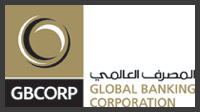
Ahmed Al Khan: Every industry has been affected by the economic downturn, be it conventional banking or Islamic banking. Islamic banking has been affected to a lesser extent, the reason being its sheer nature of operation. We are an asset-backed and profit sharing-based operation, where there is tangibility behind every investment.
That minimizes the magnification of the problems as what happened in the West because of derivatives, options, and instruments that magnified the extent of what happened. A simple sub-prime went into CDO’s and DLO’s and started transcending into investment banking and different sectors.
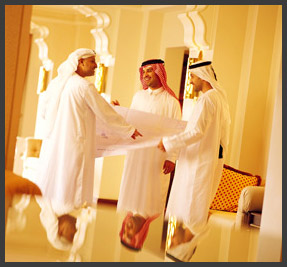 Islamic banking doesn’t do that because that’s not within its core function. Its core function is to invest in economic accelerative projects, into accelerating employment, into creating industries, so every single transaction is asset-backed.
Islamic banking doesn’t do that because that’s not within its core function. Its core function is to invest in economic accelerative projects, into accelerating employment, into creating industries, so every single transaction is asset-backed.
And when one thing is asset-backed, and not paper trail-backed you suppress it towards just that reduction within the valuation of that specific asset. That’s why it has been somewhat shielded, because of the true nature of its tangibility, but again, it has been impacted just like any other sector. Real estate development has been a sector of interest and a very profitable one over the economic boom over 6 years, and a lot of banks through their capitalistic nature rode the wave of that real estate boom.
The returns were lucrative, the investment was low risk, but it created herding. When you have herding, you create inflation within that sector. That was the only problem that was created that Islamic banking faced because the sectors it had invested in had gotten devalued and had shrunk. But in general the integrity of the Islamic banking structure is still sound, because the liquidity is still there.
Can you describe the key challenges and opportunities associated with investing during the global economic downturn, especially from the GB perspective?
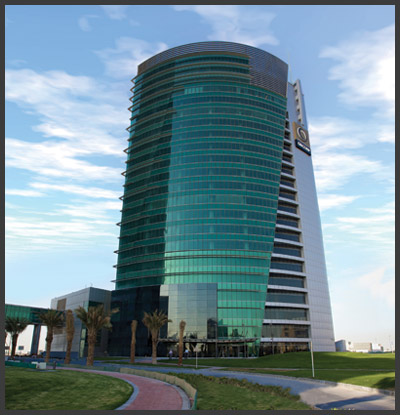 Ahmed Al Khan: The key challenge today, and one that I think is faced by everybody is not deals or opportunities, because today we definitely have more opportunities than we have ever had, it is funding.
Ahmed Al Khan: The key challenge today, and one that I think is faced by everybody is not deals or opportunities, because today we definitely have more opportunities than we have ever had, it is funding.
Funding, debt, leveraging is a problem for any banking sector, especially for an investment bank where the majority of the deals are done off balance sheets, where we depend on third party funds, to come in and pool the money that’s indicated so we can do an acquisition.
Today, because of the shrinkage in people’s disposable and surplus incomes, it makes it harder for us to raise money, even from institutions, who have taken a hit on their balance sheets, incomes, and PNL.
I think what the economic crisis has done is it has put companies into a balance sheet management mode, versus a growth mode. That is what is rippling across all the institutions which are linked. So funding is a main challenge.
Where do you see investment opportunities; in what fields in particular?
Ahmed Al Khan: We are looking at the more defensive companies; we are looking to agriculture and to telecom, we are looking to alternative energy, and we are looking to infrastructure. All the sectors that I have mentioned have cyclical institutions within them; if I talk about energy there is downstream, midstream, and upstream.
 At this point we’re trying to avoid cyclical businesses; the price of oil is high but if you make a lot of money it drops and the company goes out.
At this point we’re trying to avoid cyclical businesses; the price of oil is high but if you make a lot of money it drops and the company goes out.
We’re looking for more service-oriented sectors, where no matter what happens to the fluctuation in pricing, they are still servicing existing companies and we have constant revenue, organic growth. They are not as affected as companies that are directly related to cyclical markets.
GBCORP‘s vision is to be the leading investment bank in the GCC region with a global reach and the ability to merge international investment banking expertise with a commitment to deliver consistent returns to shareholders and investors alike. Would you be able to characterize your business model, and how do you differentiate yourself from other Islamic investment houses, such as the Gulf Finance house or the Kuwait Finance House?
Ahmed Al Khan: The Gulf finance house is a very reputable institution that has done a lot of proactive moves that have been a lesson to all banking sectors. So has the Kuwait finance house. They have both invested in multiple sectors which has been a learning curve for us today. The differentiating factor is not in the sector orientation, it’s in the product within that sector orientation.
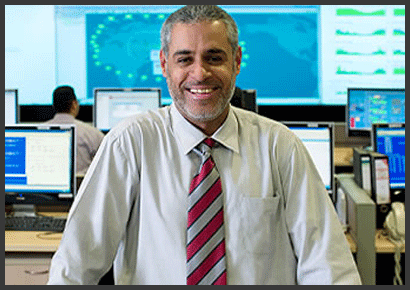
We’re really selective about product acquisition within sectors. Product orientation is going to be a little bit different. We’re trying to go for multiple smaller size deals, providing a pool of multiple investments which creates a diverse pool of opportunities for our investors. We’re going to be looking for a lot of annuity generating businesses. Finally were going to be working on a lot of on balance sheet transactions to create a revenue stream for GBCORP itself, because we are sitting on a capital pool which we are going to utilize.
The model is not going to be very different because the sectors are sectors. All banks are looking at similar sectors like agriculture, institutions and telecom structure. What subsectors within these sectors are we going to use a differentiate ourselves. Our screening process is pretty stringent.
How confident are you that the other institutions will not target the same things that you are?
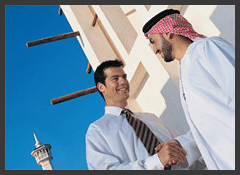 Ahmed Al Khan: It would be arrogant of me to tell you that they’re not because they are visible to everybody, and I think everybody in this business has learned the volatility of different sectors. It is not specifically about that, it is about how you structure network and how you get to those deals.
Ahmed Al Khan: It would be arrogant of me to tell you that they’re not because they are visible to everybody, and I think everybody in this business has learned the volatility of different sectors. It is not specifically about that, it is about how you structure network and how you get to those deals.
GBCORP has created a global alliance with top companies around the world to source these deals, and that is going to be our differentiating factor. We have top management flying from country to country, zone to zone, sourcing in these deals. We’re not going to have hand me down deals. We’re walking to the companies, seeking them, structuring them, and then placing them.
For the financial year 2008, GBCORP announced a total income increase of 8.1% or $53,000,000, and a net profit of $21,000,000 while achieving a return on equity of 12%. These are incredible numbers. How confident are you about delivering the same performance for years to come, and what made you profitable amidst the ongoing economic turmoil?
Ahmed Al Khan: The economic turmoil picked up after figures were announced because it was 2008. The keywords that you said were “years to come.”
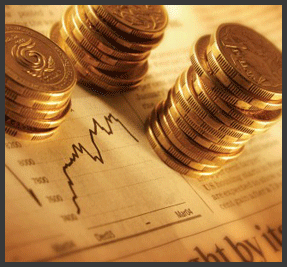 You don’t characterize a bank’s performance based on one year to come. We’re very confident that in years to come we’re going to beat those numbers, the reason being that it is a more opportunistic market today. Today you can get into markets and grow and generate even higher yields.
You don’t characterize a bank’s performance based on one year to come. We’re very confident that in years to come we’re going to beat those numbers, the reason being that it is a more opportunistic market today. Today you can get into markets and grow and generate even higher yields.
Our first two years were primarily real estate infrastructure deals and right now we’re actively seeking private equity buyouts and I think we’re going to beat those numbers.
In 2009, we’re doing more balance sheet management, and we’re trying to be more selective in the deals, but come 2010-2011 we’re going to go back into aggressive acquisition mode.
When we interviewed First Energy Bank, they were telling us the same story; that they’re going to capitalize on the cyclical energy sector.
Ahmed Al Khan: We’re not going to capitalize on the cyclical energy sector, that is exactly what I do not want to do. If I do that I’m going to have three years of profits and three years of losses, and that is not something that I want to do.
I think it is a very difficult statement for anyone to make to say they know the exact entry and exit points to any kind of cyclical business; that’s why our target is more defensive category pillars, in different subsectors, and I’m trying to avoid cyclical businesses.
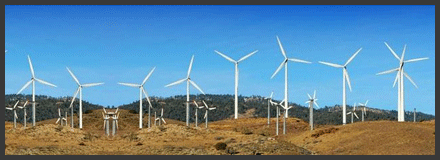
If I do they are going to be very marginal and very small investments just because they have a higher upside, but it’s not going to be my core focus. If I talk cyclical and volatile sectors, the whole market is focusing on exactly the same thing, riding the economic wave, riding and going on the upbeat and exiting at the top. But what is the top and what is the bottom?
You’re also active in real estate in Bahrain; can you tell us more about this?
Ahmed Al Khan: Yes we are. We just launched a mega-project in Bahrain, that is a 2.4 square kilometer real estate deal that is in the northeast coast of Bahrain. It is strategically located and is going to be a maritime lifestyle city. It is a unique real estate project.
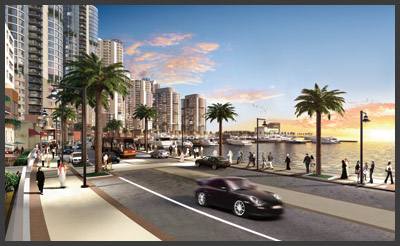
Most of the real estate projects in Bahrain are either business oriented or residential oriented, and the majority of them are push type selling, so if you don’t live there and you don’t work there, you’re not going to go there. They are all areas are you either live or work. Bahrain is lacking tourism. We are a touristic country and we need to trigger that. Marsa Al-Seef is going to be just that. It is going to have the lifestyle of Monaco, it is going to the boardwalks, marinas, and hotels. It is going to have a lifestyle on the water, and that is our key focus.
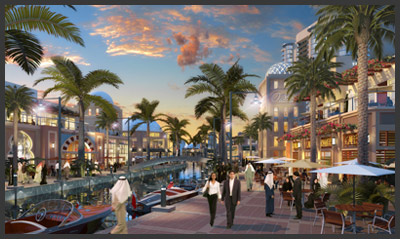
We want to bring people in, and that is what Bahrain’s economy thrives on; hotel occupancies, retail sales, the liberal lifestyle, bringing people from the West and letting them work here. We are trying to integrate all of these things into Mersa Al-Seef.
We have signed with multiple thematic companies, which are going to create the themes and lifestyles. That is what Marsa Al-Seef is all about, is going to be different. It is going to be a lifestyle catering to everyone who comes to Bahrain.
Everything looks positive; your numbers, your return on investments. What is your main challenge?
Ahmed Al Khan: Our main challenge is funding. Today, the market sentiment has to improve for us to be able to launch the projects that we have in mind. The liquidity has to improve and the bank sector has to get more confident in funding deals. Investors have to be more confident in capitalizing on the existing economic turmoil.
 What happens is that once you go into a pessimistic trail of thought, it is difficult to snap out of it. And who do you blame? You blame every business sector. So it is more challenging to sell products today to the market.
What happens is that once you go into a pessimistic trail of thought, it is difficult to snap out of it. And who do you blame? You blame every business sector. So it is more challenging to sell products today to the market.
People want to take a very safe passive role, depositing their money into the safest banks and the safest safe deposit boxes. You are seeing this migration, people are trying to find out what the safest banks are, and they want all their money to go there. They’re taking their money out of other banks and they’re just shifting up because they are scared what will happen if this bank goes bust. The same thing is happening with investments. People have taken a very lax position in investment. They have gone into a more shielded, protected stage. To invest in any project, you have to take more of a risky, challenging approach. I think slowly the market is understanding this.
Have you witnessed a loss of confidence in your investors since the beginning of the crisis?
Ahmed Al Khan: We are a very customer oriented bank. Since the economic climate deteriorated, we just made it a very informative period for our investors. Regarding all the investments that they had made with us, we just made sure that they went to bed informed, knowing what their product is doing, knowing what their share price looks like, and knowing how their investment is working. On Marsa Al-Seef, we give a very diligent update report. We’re trying to build our rapport, that personalized rapport with our clients to keep them alert, aware, and comfortable.
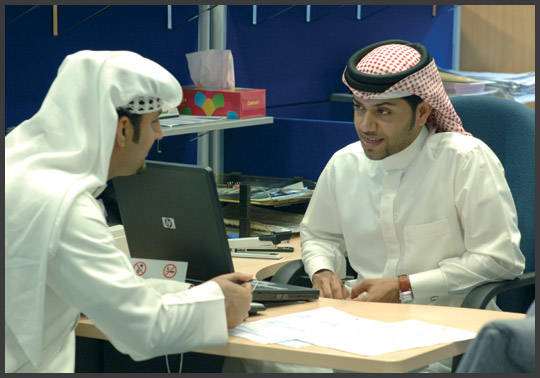
The unknown, abstract factor of investment makes clients’ sentiments break. We do not want that to happen, we want them to be informed. There is fear and skepticism within the investment climate, even our own investors because our investors are not our own investors exclusively; they invest with other institutions too.
Some of them have taken losses and some of them have been hurt by the market. All we have to do is build their confidence level. It is our job is an investment bank to do that.
We deliver a green award for the company that we interview that has the best strategy and policy towards the environment, and sustainable development. What is your strategy and policy towards this issue; what do you have planned for yourself internally and for your investments?
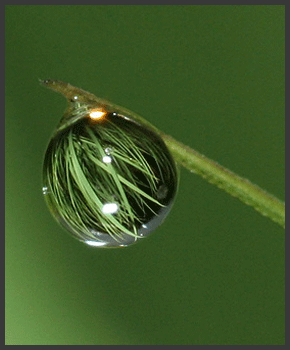 Ahmed Al Khan: As I mentioned earlier we have a lot of deals in alternative energy; clean, green technologies, carbon–credit promoting technologies. I cannot disclose the deals we are working on right now, but they’re all capitalizing on this wave of trying to prevent the deterioration of the ozone layer. Investment bank philosophy has revenue generating. If we were an energy company, I would say that it is part of our philosophy, but we’re not an industrial company.
Ahmed Al Khan: As I mentioned earlier we have a lot of deals in alternative energy; clean, green technologies, carbon–credit promoting technologies. I cannot disclose the deals we are working on right now, but they’re all capitalizing on this wave of trying to prevent the deterioration of the ozone layer. Investment bank philosophy has revenue generating. If we were an energy company, I would say that it is part of our philosophy, but we’re not an industrial company.
We are a financial company, so we look at where opportunity lies. But within that sector, it has become an opportunistic sector, because with Obama’s initiatives and people seeing how their ecosystem is being deteriorated, an opportunity arises. We’re looking at that very carefully; it is part of our focus within the alternative energy sector to promote investments companies that work with alternative energy technology. There a lot of things that we’re working on today and it is a core focus within alternative energy.
How much of your portfolio is dedicated to investment into alternative energy?
Ahmed Al Khan: Speculatively, out of four energy deals, at least one or two of them are alternative energy based.
What is your vision for GBCORP, your dream, and a final message to our audience about Bahrain?
Ahmed Al Khan: My vision for GBCORP is for it to become the most comfortable investment bank that you can invest in; the most clients and investor friendly investment bank that you can invest in. I want it to be the most diligent and stringent in its screening process and investment orientation. And I want it to be global. Investment Banks are client centric, investor centric. And if I’m going to focus on my growth neglecting my clients’ interests, I won’t grow.
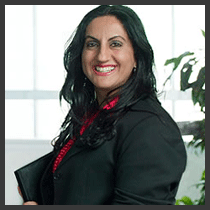 I have to be investor centric. I have to put my investors ahead of myself, because without them I will not have any products to sell, or anybody to sell my products to. At the same time we’re very stringent on our screening process to find the right opportunities for our investors. At the same time we’re also taking great care to inform our investors. What the name GBCORP signifies is going to be a global bank at one stage during its growth peak.
I have to be investor centric. I have to put my investors ahead of myself, because without them I will not have any products to sell, or anybody to sell my products to. At the same time we’re very stringent on our screening process to find the right opportunities for our investors. At the same time we’re also taking great care to inform our investors. What the name GBCORP signifies is going to be a global bank at one stage during its growth peak.
The current economic climate is a difficult one, but I think once we are out of this wave we’re going to continue to pursue our global growth. We have very strong affiliations in the Far East, in America, and those are going to be two areas in which we’re going to have a position. Hopefully having amended and implemented our vision we can end up listing the company whereby we will get the customers to invest in our institution.
I think the future in Bahrain looks very bright. Bahrain is very human centric. It is a country in which people are invested in, families raise their kids not to inherit but to earn and have a career. That is the core infrastructure behind any economy. The real estate sector can boom and bust. Industrial sectors can boom and bust. Every sector can boom and bust.
The only sector that does not boom and bust is the human capital sector because they are adaptive as long as they have the basic intellectual property. Bahrain has invested quite a lot of its people. The unique attribute of Bahrain is that there are people working in every sector. Bahrainis are proud to work, they want to work, may it be at a gas station, at a McDonald’s, at a bank, or in a cab. That is where we become very human centric.
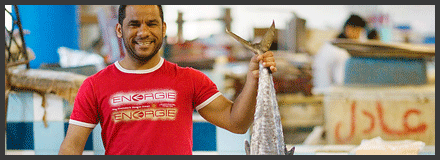
The main challenge in a lot of Middle Eastern countries is human capital. Bahrain has it. His Highness Sheikh Salman has played a very strong initiative in creating unique, excelling, educated Bahrainis through a scholarship programs. The students are going to Duke, to Harvard, and top schools around the world who want to come back and serve their country overall to make it an economic hub.
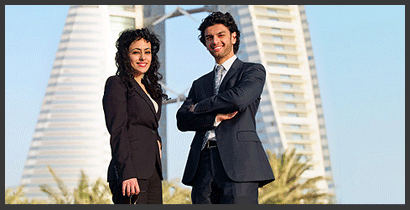
Because what is an economic hub? Without people you do not have an economy. That is where our focus is, and I think Bahrain is doing a very good job by creating a business friendly environment where people can interact with business friendly people.
Tags: Ahmed Al Khan, Islamic Banking, Investment Banking, GBCORP